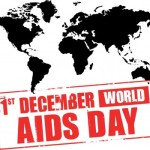Kathy Bates’s Private Cancer

Actress Kathy Bates has been in the public eye for many years.
But the Academy Award-winning Harry’s Law actress is now admitting something she kept very private. She is an ovarian cancer survivor!
In an episode which airs today, Bates told Anderson Cooper that she was diagnosed with ovarian cancer in 2003, but was advised to keep the information secret. She was about to start filming the 2004 movie, Little Black Book, which also starred Brittany Murphy.
… my doctors at the time, they had to get insurance approval and all of that so, you know, I was very quiet about it. And I had to go back to work right away.
And Bates felt it was something she had to deal with on her own:
I don’t know how to explain it. Nobody else really knows what you’re going through except another cancer patient. Even though your family is supportive and surrounds you, I just got to a point where I would go to chemo by myself and just really go through it on my own. I guess it’s something that I felt I had to face on my own.
In 2008, Bates did describe how she was diagnosed in a video for the Ovarian Cancer National Alliance. While traveling in Europe, she felt bloated and threw up a few times. Although she originally chalked it up to the travel, she listened to her body, and it told her something was wrong. She went to her gynecologist as soon as she got home and was diagnosed as having a mass in her right ovary on an ultrasound test. She was treated with surgery and chemotherapy.
Bates now says that if she would be much more open if she ever had cancer again, and admires those who have publicly battled the disease.
What do I Need to Know about Ovarian Cancer?
What is it?
The ovaries are a pair of oval shaped organs in a woman’s pelvis. They are responsible for the production of eggs, as well as the female reproductive hormones estrogen and progesterone.
Ovarian cancer is a cancer which starts in the cells of the ovaries. There are three main types of ovarian cancer, based on the kind of ovarian cell in which the tumor begins:
- Epithelial cell cancer—Epithelial cells (which are like skin cells) cover the surface of the ovary. 85-90% of ovarian cancer cases are this type.
- Germ cell cancer—Germ cells are the cells in the ovary that develop into eggs. This type of cancer is more common in younger women and usually has a high cure rate.
- Stromal cell cancer—Stromal cell cancer occurs in the connective tissue, which provides the internal structure of the ovary. It also has a high cure rate.
Important statistics:
It is estimated that 21,990 women will be diagnosed with and 15,460 women will die of cancer of the ovary this year.
Although it accounts for only 3 percent of all cancers in women in the US, it comes in fifth as a cause of cancer-related death among women.
It has the highest mortality of all cancers of the female reproductive system. This reflects, in part, a lack of early symptoms and effective ovarian cancer screening tests. Because of this, ovarian cancer is often diagnosed at an advanced stage, after the cancer has spread beyond the ovary.
White women have higher incidence and mortality rates than women of other racial and ethnic groups.
What are the risk factors?
- Family history of cancer: Women who have a mother, daughter, or sister with ovarian cancer have an increased risk of the disease. Also, women with a family history of cancer of the breast, uterus, colon, or rectum may also have an increased risk of ovarian cancer.
- Personal history of cancer: Women who have had cancer of the breast, uterus, colon, or rectum have a higher risk.
- Age over 55: Most women are over age 55 when diagnosed.
- Never pregnant: Older women who have never been pregnant.
- Menopausal hormone therapy: Some studies have suggested that women who take estrogen by itself (estrogen without progesterone) for 10 or more years may have an increased risk.
What are the symptoms?
Early ovarian cancer may not cause obvious symptoms. But, as the cancer grows, symptoms may include:
- Pressure or pain in the abdomen, pelvis, back, or legs
- A swollen or bloated abdomen
- Nausea, indigestion, gas, constipation, or diarrhea
- Feeling very tired all the time
What is the treatment and prognosis?
The prognosis and treatment of ovarian cancer, like all other cancers, depends on the stage of the cancer at the time it is diagnosed. Tumors found early before they have spread have the best prognoses. Treatment typically includes surgery to remove the tumors and then chemotherapy to eliminate any microscopic tumor cells to prevent a recurrence.
For more information, click here for the Resounding Health Casebook on the topic.
Some thoughts:
Of course, everyone has the right to privacy in regards to their medical history, but do you think Kathy Bates was right to hide her illness at the time?
Or could she have increased awareness about a particularly difficult medical problem?
In any case, she is doing just that now, and for that I say “thank you.”



























0 comments